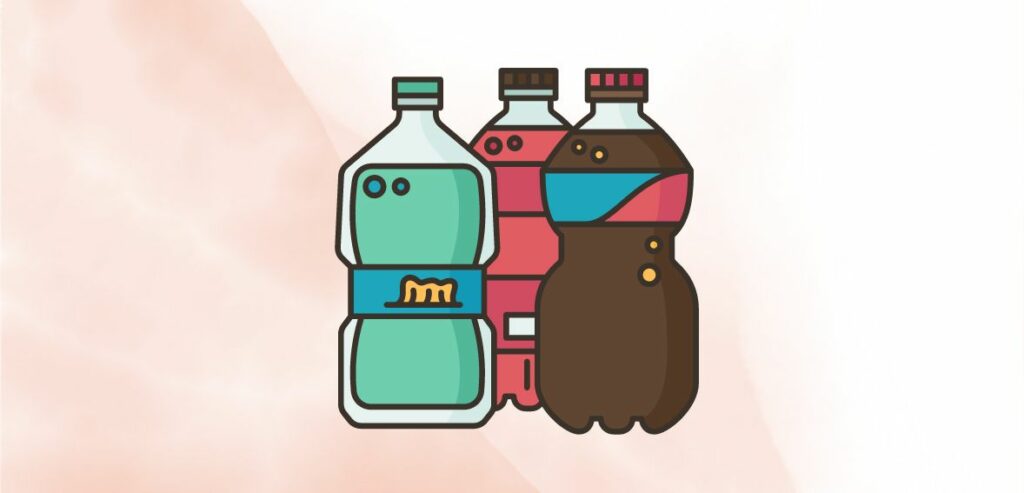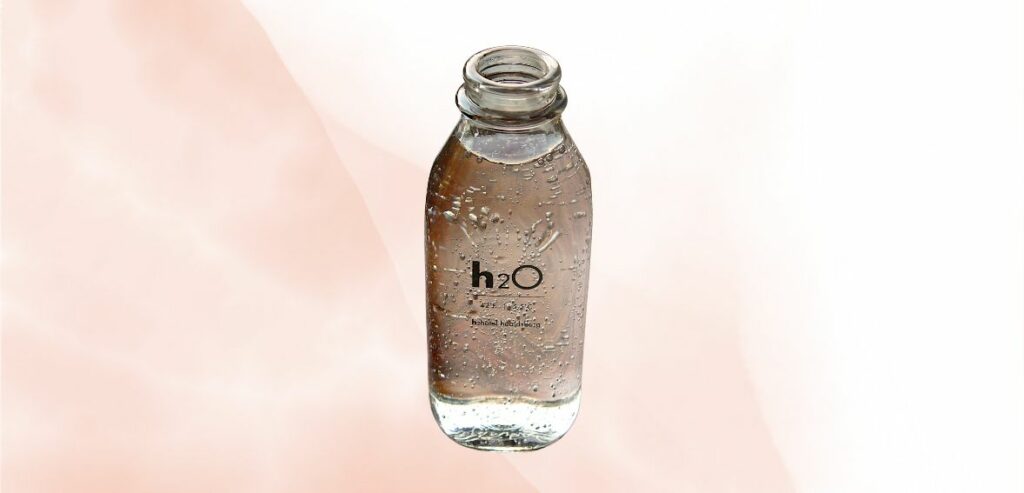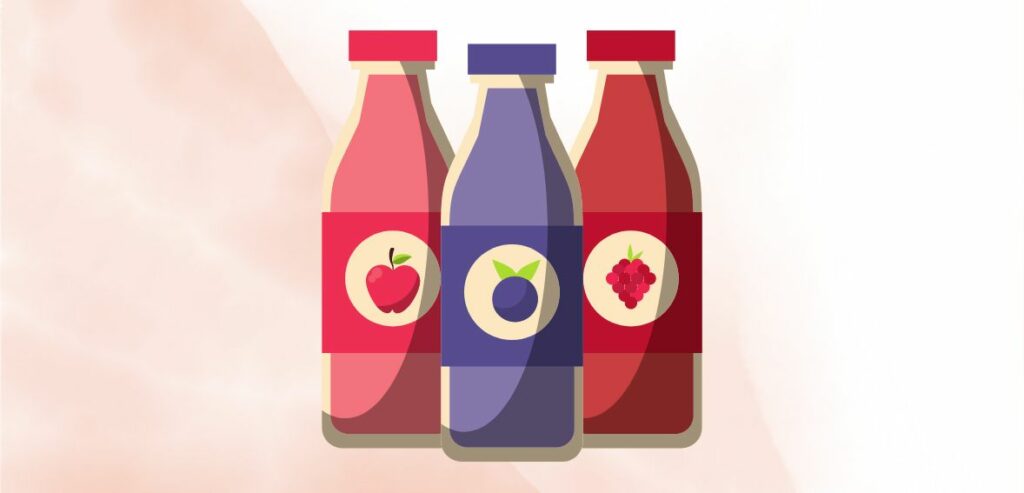An isotonic beverage is a drink made to help the body stay hydrated during or after an intense workout. Mostly popular among athletes and sportspersons, this carbohydrate-rich drink is consumed not only to maintain energy when the body requires it but also to boost it, especially during long matches/events or prolonged workout sessions.
But what makes isotonic drinks so unique? This article provides comprehensive insights into this beverage, including when to consume it, its potential benefits, and homemade alternatives.
What is an Isotonic Beverage?

An isotonic beverage is a special kind of drink that is popular for its high rehydration properties. It contains low sodium levels, speeding up the body’s water absorption process. Unlike energy drinks or tonics, these types of beverages do not contain any substance that gives a stimulating or “caffeinated” experience. Commonly, they include ingredients such as glucose or sugar, potassium, sodium chloride, and other minerals that are a must for replenishing electrolytes lost during sweating.
From a scientific perspective, an isotonic beverage shares a concentration similar to our blood’s. Our blood has an osmolarity range of 280 to 300 mOsm/L, which measures its concentration. Likewise, isotonic drinks maintain exact osmolarity, indicating a similar concentration of water, carbohydrates, sugar, salt, and other components.
Today, many isotonic drinks are readily available in supermarkets, including popular brands like Prime, Gatorade, Lucozade, and Powerade. These drinks offer convenient options for athletes and fitness enthusiasts seeking effective hydration solutions.
Understanding the Role These Isotonic Beverages Play?
Heavy exercise causes sweating, which causes your body to lose water and electrolytes like magnesium, sodium, and potassium—sodium being the key electrolyte depleted here. If dehydration exceeds 2% of body weight, it can strain your heart, disrupt temperature regulation, and reduce endurance. Isotonic drinks refresh fluids and electrolytes at the cellular level, matching your body’s natural concentrations. They play a crucial role in intense physical activities, especially in hot conditions when your body becomes dehydrated from sweating.
Isotonic drinks aid in rehydration during exercise by restoring essential electrolytes and fluids lost through sweat. Additionally, including carbohydrates in these drinks provides an energy boost, which is particularly beneficial during endurance activities, sporting events, or prolonged training sessions.
Why do Athletes Require Isotonic Beverages?
As previously discussed, isotonic drinks offer a convenient and effective method of getting instant nutrients lost during strenuous workouts or exercise. Maintaining proper hydration levels is crucial for athletes, significantly impacting their performance and overall health. Dehydration can notably impair athletic performance and potentially lead to health complications. Similarly, various nutrients are essential in supporting athletes during exercise and assisting in recovery.
Athletes can’t solely rely on water for rehydration. Water is an excellent, calorie-free source of hydration, but intense workouts with lots of sweat require more. Isotonic drinks are helpful during vigorous exercise as they contain carbohydrates, salt, electrolytes, and more, all of which are lost during exercise.
Why Being Hydrated is Important for Athletes?

Hydrating is crucial for athletes to maintain proper bodily functions and control intense, sudden pressure during physical activity. Hydration regulates the body temperature, lubricates joints, transports essential nutrients, and eliminates all toxins from the body. It also improves blood circulation, delivering more oxygen to muscles and organs and significantly recovering the body back to normal. The more prolonged and more intense the exercise, whether playing sports, running, walking, swimming, or climbing, the more it becomes essential to consume the suitable types and amounts of fluids.
Dehydration forces the body to work harder to maintain performance levels, increasing the risk of cramps, dizziness, fatigue, and other symptoms of illness. Severe dehydration can even result in heat-related illnesses such as heat exhaustion or heat stroke.
Athletes engaging in activities lasting up to 70 minutes should consume fluids during the event to prevent dehydration-induced fatigue. A weight loss of more than 2% due to dehydration (e.g., 1.5kg in a 75 kg athlete) can significantly impair performance. Athletes who train intensely for prolonged periods each day have higher fluid requirements and should drink according to their sweat rates, ranging from 0.3 to 2.5 liters per hour, depending on environmental conditions.
How to Calculate Sweat Rate?
Calculating your sweat rate is essential to ensure proper hydration during exercise. To determine your sweat rate accurately, follow these steps:
- Weigh yourself before beginning exercise, ensuring you haven’t consumed any fluids.
- Engage in one hour of moderate-intensity exercise.
- Weigh yourself again immediately after completing the exercise session.
For precise results, it’s recommended to weigh yourself without clothing. For instance, if your pre-exercise weight is 81 kilograms and your post-exercise weight is 80 kilograms, then you’ve lost 1 kilogram (or 1 liter) of fluid through sweat. Next, divide this amount by 2, resulting in 0.5 kilograms (or 0.5 liters). This is the approximate volume of fluid you should aim to consume per hour during exercise to maintain proper hydration levels.
Since sweat rates can vary across different sports and environmental conditions, it’s advisable to calculate your sweat rate for each specific activity, such as running, cycling, and others, to tailor your hydration strategy accordingly.
Different Types of Sports Drink
Three categories of sports drinks exist, each comprising different fluid, electrolytes, and carbohydrate content levels:
- Hypotonic drinks:
Hypotonic drinks are formulated to replenish fluids lost during exercise swiftly. They have minimal carbohydrate content and a lower salt and sugar concentration than the human body.
Hypotonic drinks are designed to replenish fluids lost through sweating rapidly. They are ideal for athletes who need hydration without an accompanying carbohydrate boost, such as gymnasts.
- Isotonic drinks
Isotonic drinks maintain concentrations of salt and sugar similar to those of the human body. They are designed to replace fluids lost during exercise while boosting carbohydrates rapidly.
Many athletes favor isotonic drinks as they swiftly replenish fluids lost through sweating while providing a carbohydrate boost. These beverages are prevalent among athletes engaged in middle and long-distance running, as well as those participating in team sports.
- Hypertonic drinks
Hypertonic drinks aim to supplement the body’s daily carbohydrate intake, offering high levels of carbohydrates for maximum energy uptake. These drinks are best consumed after exercise to replenish glycogen levels swiftly. They typically have a higher concentration of salt and sugar than the human body, although they are less commonly available in the market.
Hypertonic drinks are typically consumed after workouts to supplement daily carbohydrate intake and replenish muscle glycogen stores. During ultra-distance events, they can also meet high energy demands. However, it’s important to note that when used in these events, they should be accompanied by isotonic drinks to effectively replace lost fluids.
Benefits of Isotonic Beverages
Isotonic drinks are formulated to mirror the body’s natural levels of salt and sugar, typically containing carbohydrates ranging from 6% to 9%. These sports beverages are vital in swiftly replenishing fluids lost through sweat while boosting carbohydrates. They are the preferred choice for most athletes engaged in medium to long-distance running, cycling, or team sports. In addition to rehydration, isotonic drinks offer several benefits:
- Rapid Hydration: Isotonic drinks efficiently replenish fluids lost to sweat, enhancing rehydration. Their composition allows them to be absorbed quickly by the body, equivalent to the rate at which water is absorbed, thus minimizing urine output and maximizing fluid retention to combat dehydration.
- Energy Boost: These drinks are an immediate energy source, given their carbohydrate content. They can significantly replenish glycogen stores, which is crucial for sustained physical activity. Consuming isotonic drinks can restore the body’s glycogen balance faster than natural recovery processes.
- Electrolyte Replacement: Through sweat, athletes lose essential minerals such as sodium, magnesium, and calcium. Isotonic drinks are formulated to replace these lost electrolytes, maintaining the body’s electrolyte balance, vital for muscle function and overall health.
- Improved Performance: Studies have shown that isotonic drinks can extend the duration of high-intensity activities by up to 24% compared to placebo solutions, attributing to enhanced endurance and athletic performance.
When and How Much Isotonic Beverages Should You Consume?

Knowing when and how to consume an isotonic drink is crucial for athletes looking to optimize their performance. Primarily, it’s essential to understand that isotonic drinks are intended for use within the context of sports activities. Beyond this, there are no strict rules governing their consumption. The decision to drink an isotonic beverage depends on various factors, including environmental conditions (such as temperature), the exercise session duration, and individual fitness levels.
Experts often suggest incorporating isotonic drinks into hydration strategies when engaging in prolonged physical activity (as mentioned previously) beyond the 70-minute. Consuming these drinks gradually, in small sips, spaced out over time is advisable. Rather than consuming large quantities at once, aim to drink approximately 150 ML every 15 to 20 minutes during exercise sessions. This approach helps to maintain hydration levels effectively and supports optimal performance throughout the activity.
These beverages typically comprise two primary ingredients:
- Carbohydrates: These sugars serve as the fuel source for active muscles, providing energy during physical exertion.
- Sodium: Essentially, this is just salt. A modest amount of sodium aids in expediting rehydration by maintaining fluid balance and replenishing the salts lost through sweating.
Here are two of the best recipes for homemade isotonic drinks:
Option 1: Fruit Sports Drink
For a homemade sports drink with natural ingredients, try the Fruit Sports Drink. To make it, combine 250ml of natural fruit juice with 250ml of water and a pinch of salt. Mix the ingredients and chill before serving.
This recipe uses natural fruit juice instead of squash, providing a refreshing and cost-effective alternative. For instance, using a budget-friendly orange juice ensures affordability while delivering approximately 26g of carbohydrates per serving, placing it within the ‘isotonic’ range. Although slightly lower in carbs than commercial brands like Gatorade or Lucozade, this homemade option offers a more natural taste at a fraction of the cost.
You can customize this recipe by selecting different types of fruit juice, such as pressed apple, mango, or pineapple. Despite the variation in juice quality, each serving remains significantly more economical, typically costing only 10-20% of store-bought sports drinks.
Option 2: Ginger Lemon Sports Drink
Try the ginger lemon sports drink for a refreshing and natural isotonic drink. To prepare a ginger lemon sports drink, start by adding a few thin slices of raw ginger to a large cup of boiled water and let it infuse until the water gets flavored. Once the flavor is infused, remove the ginger slices and add 44 ml of lemon juice and three teaspoons of honey to the water. Stir well to combine, then allow the mixture to cool before transferring it to a drinks bottle and chilling in the refrigerator.
This homemade beverage offers a plethora of health benefits. Ginger is renowned for its anti-inflammatory properties, which it shares with natural lemon juice. Additionally, lemon juice provides a boost of vitamin C. For added benefits, consider using manuka honey, although it may be more costly than regular honey. This Ginger Lemon Sports Drink provides a refreshing and nutritious option for hydration during physical activity.
Conclusion
Isotonic beverages are vital for athletes and fitness enthusiasts, offering rapid rehydration and replenishment during physical exertion. With their balanced composition of carbohydrates and electrolytes, these drinks mimic the body’s natural fluid concentration, ensuring swift absorption and adequate hydration. Their significance becomes evident in preventing dehydration-induced fatigue, enhancing endurance, and optimizing athletic performance.
While commercial isotonic drinks provide convenient options, homemade alternatives offer cost-effective and customizable solutions. Understanding the role of isotonic beverages in hydration strategies, coupled with appropriate consumption practices, helps individuals effectively reap these beverages’ benefits. Integrating isotonic drinks into hydration routines can significantly contribute to maintaining optimal performance levels and supporting overall health during physical activity.
Frequently Asked Questions
Can you provide examples of isotonic drinks?
Examples of isotonic drinks include Prime Hydration, Lucozade Sport, and Gatorade. These beverages typically contain 6-8% carbohydrate and sodium and are commonly used in team sports and medium to long-distance running.
Are isotonic drinks safe to consume?
While isotonic drinks can be beneficial during vigorous exercise, consuming them excessively, especially during less strenuous activities, can pose health risks such as overweight/obesity, type 2 diabetes, cardiovascular disease, gout, and dental caries.
How can you determine if a drink is isotonic?
Most traditional sports drinks, such as Gatorade and Powerade, are considered isotonic, meaning their concentration is similar to that of human blood. Isotonic drinks provide a moderate amount of energy and are efficiently absorbed by the body.
Is Red Bull considered isotonic?
Red Bull is an energy drink, not an isotonic sports drink like Powerade or Gatorade. While isotonic drinks are intended for prolonged intense exercise, energy drinks like Red Bull are hypertonic and typically consumed post-exercise.

